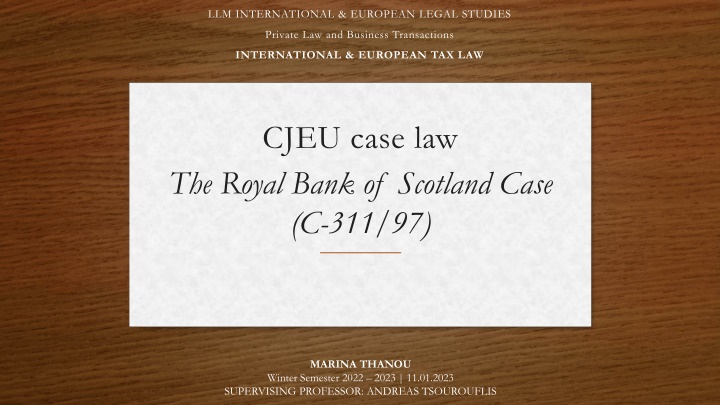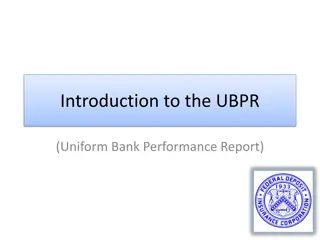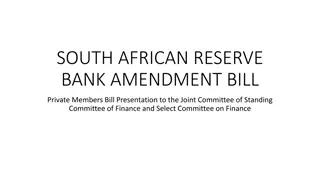
Royal Bank of Scotland Case Analysis
This case analysis delves into the legal grounds and facts surrounding the Royal Bank of Scotland case, involving taxation issues and compliance with Greek laws. The case explores discrepancies in tax rates applied, implications of Greek Income Tax Code laws, and the rejection of the bank's reservation on tax rates by Greek authorities.
Download Presentation

Please find below an Image/Link to download the presentation.
The content on the website is provided AS IS for your information and personal use only. It may not be sold, licensed, or shared on other websites without obtaining consent from the author. If you encounter any issues during the download, it is possible that the publisher has removed the file from their server.
You are allowed to download the files provided on this website for personal or commercial use, subject to the condition that they are used lawfully. All files are the property of their respective owners.
The content on the website is provided AS IS for your information and personal use only. It may not be sold, licensed, or shared on other websites without obtaining consent from the author.
E N D
Presentation Transcript
LLM INTERNATIONAL & EUROPEAN LEGAL STUDIES Private Law and Business Transactions INTERNATIONAL & EUROPEAN TAX LAW CJEU case law The Royal Bank of Scotland Case (C-311/97) MARINA THANOU Winter Semester 2022 2023 | 11.01.2023 SUPERVISING PROFESSOR: ANDREAS TSOUROUFLIS
Royal Bank of Scotland Facts of the Case & Legal Grounds Seat: UK Branch: Piraeus, Greece Permanent Establishment A Case on Direct Taxation Income tax declaration of the financial year of 1995 Tax rate applied 40 % Greek Income Tax Code, Law No. 2238/1994 Reservation : The tax rate of 35 % should have been applied
Royal Bank of Scotland Facts of the Case & Legal Grounds Greek Income Tax Code, Law No. 2238/1994 Article 109: Different tax rate according to the taxpayer s category 1. Domestic PLCs Shares NOT quoted to the Athens Stock Exchange 40% tax rate on income Shares quoted to the Athens Stock Exchange 35% tax rate on income Foreign companies and organizations operating with a view to profit No other criterion based on legal form or type of shares 40% tax rate on income
Royal Bank of Scotland Facts of the Case & Legal Grounds Greek Income Tax Code, Law No. 2238/1994 Law No. 5075/1931 Regulation of Banking Institutions Legal form PLC Law No. 2190/1920 Regulation of PLC s legal status Shares of credit institutions Registered shares All Greek Banks are classified under 35% of tax rate
Royal Bank of Scotland Facts of the Case & Legal Grounds Greece UK Double Taxation Convention (DTC) Article XVI: The nationals of one of the Contracting Parties shall not be subject, on the territory of the other Contracting Party, to taxation or any connected requirement which differs from, or is greater or more burdensome than that which the nationals of the other Contracting Party are or may be subject.
Royal Bank of Scotland Before Greek Authorities Reservation : The tax rate of 35 % should have been applied REJECTED by the Director of the Financial Authority on the ground that as regards income tax, the Royal Bank of Scotland was governed by Article 109 (1a) of Law No. 2238/1994 providing for a rate of taxation of 40 % in the case of foreign companies and organizations carrying on business for profit in Greece
Royal Bank of Scotland Before Greek Courts Administrative Court of First Instance of Piraeus against the negative answer of the Director of the financial authority against the Greek State The Court: Not familiarized with tax matter including Community elements It stayed proceedings It referred a question to the European Court of Justice (ECJ)
Royal Bank of Scotland Reference to the ECJ IsArticle 109 (1a) of the Greek Income Tax Code (Law No 2238/1994, Official Journal of the Hellenic Republic No 151 A), which, in applying a tax rate of 40 % to the taxable income of foreign companies, imposes on foreign companies a different, heavier tax charge than on domestic companies, to which a tax rate of 35 % is applied, permissible under Community law and, in particular, is it in conformity with Article 7 and 52 of the Treaty? In other words, is the Greek State entitled to impose that differential tax treatment on foreign companies?
Royal Bank of Scotland ECJ s Reasoning EC Treaty s Articles in question Article 7 (EEC) Article 6 (EC Treaty) Within the scope of application of this Treaty, and without prejudice to any special provisions contained therein, any discrimination on grounds of nationality shall be prohibited.
Royal Bank of Scotland ECJ s Reasoning EC Treaty s Articles in question Article 52 [ ] restrictions on the freedom of establishment of nationals of a Member State in the territory of another Member State shall be abolished by progressive stages in the course of the transitional period. Such progressive abolition shall also apply to restrictions on the setting up of agencies, branches, or subsidiaries by nationals of any Member State established in the territory of any Member State.
Royal Bank of Scotland ECJ s Reasoning EC Treaty s Articles in question Article 52 Freedom of establishment shall include the right to take up and pursue activities as self-employed persons and to set up and manage undertakings, in particular companies or firms within the meaning of the second paragraph of Article 58, under the conditions laid down for its own nationals by the law of the country where such establishment is effected, subject to the provisions of the Chapter relating to capital.
Royal Bank of Scotland ECJ s Reasoning EC Treaty s Articles in question Article 58 Companies or firms formed in accordance with the law of a Member State and having their registered office, central administration, or principal place of business within the Community shall, for the purposes of this Chapter, be treated in the same way as natural persons who are nationals of Member States. 'Companies or firms' means companies or firms constituted under civil or commercial law, including cooperative societies, and other legal persons governed by public or private law, save for those which are non- profitmaking.
Royal Bank of Scotland ECJ s Reasoning EC Treaty s Articles in question Article 52 Freedom of Establishment The Court reiterates in this case that the legal persons seat: serves as the connecting factor with the legal system of a particular State, like nationality in the case of natural persons
Royal Bank of Scotland ECJ s Reasoning Objectively comparable situation it is necessary to ascertain whether, for the purposes of the taxation of profits earned in Greece, a company having its seat in Greece and a branch established in Greece of a company having its seat in another Member State are in an objectively comparable situation. If they are The discriminative treatment is unjustified Settled case law : discrimination means the application of different rules to comparable situations or of the same rule to different situations.
Royal Bank of Scotland ECJ s Reasoning Objectively comparable situation Greek legislation does not establish any distinguishing element to justify the difference in treatment Article 56 was not applicable discrimination [ ] on grounds of public policy, public security, or public health is compatible with Community Law It expressly considered this situation as a comparable one since all features involved are equal
Royal Bank of Scotland ECJ s Final Ruling Articles 52 and 58 of the EC Treaty are to be interpreted as precluding legislation of a Member State, such as the tax legislation in question in the main proceedings, which, in the case of companies having their seat in another Member State and carrying on business in the first Member State through a permanent establishment situated there, excludes the possibility, accorded only to companies having their seat in the first Member State, of benefiting from a lower rate of tax on profits, when there is no objective difference in the situation between those two categories of companies which could justify such a difference in treatment.
Royal Bank of Scotland OECD Model Provisions Article 24 Concerning the discrimination notion 3. The taxation on a permanent establishment which an enterprise of a Contracting State has in the other Contracting State shall not be less favorably levied in that other State than the taxation levied on enterprises of that other State carrying on the same activities. [ ]
Royal Bank of Scotland Overall The Court reiterate its discrimination based approach reasoning upon unjustified tax burdens imposed by the host Member State to foreign taxpayers It enhanced the significance of fundamental freedoms for the interpretation of domestic law in a harmonized way Thank you!






















